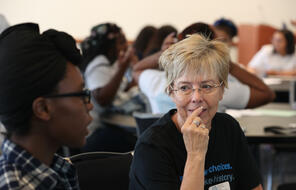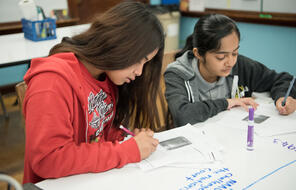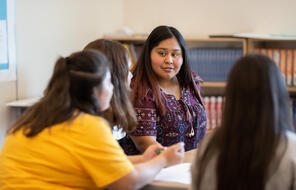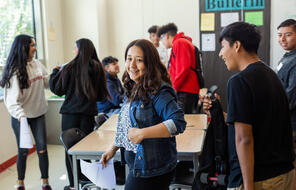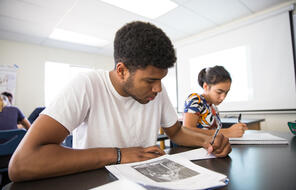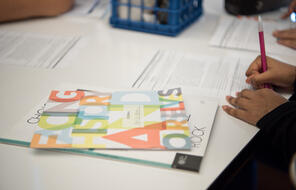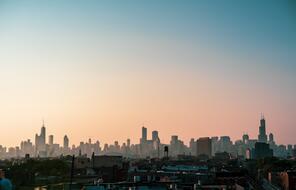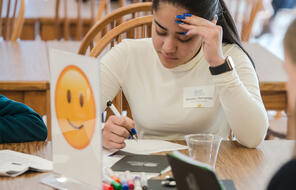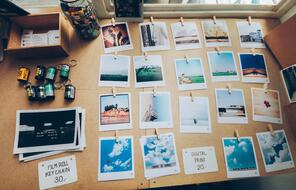I, too, was a child when the Nazis invaded Poland in 1939. My six years of darkness include the Krakow Ghetto, Plaszow, Auschwitz, the death march, cattle cars, Bergen-Belsen, and finally Mauthausen.
You see, when I was a little girl, the world was comprised of two kinds of nations-- those that would not allow the Jews out and those that would not allow the Jews in. Immigration requirements were impossible. And there was no Israel. And so we were trapped, and we were slaughtered. For me, the devastation was complete. My mother was killed in the death camp in Belzec, my father in Mauthausen. Out of a family of 84, only my sister Blanca and I survived.
Mark suggested that each of us share a vivid memory. And boy, did I struggle with that, because most of my memories, especially the bad ones, are very, very vivid. And I decided on a memory from Bergen-Belsen, which I believe was worse than Auschwitz. And some of this unspeakable horror is depicted-- again, I'm forever leaning on my poetry. It's depicted in the poem I call "Icicles."
But let me explain. Bergen-Belsen was a death trap. There was no work. There were no-- the barracks-- 400 women in a barracks that was meant for 40, maybe. No blankets, no bunks. We were not fed in that camp at all, because we didn't work. And so the only food we ever had was something we would manage to steal, going behind the German kitchens. Of course, if you were caught, you were shot.
And so I remember endless hours in that camp, standing on the roll calls. And very little has is being said about the appellplatz, the horror of standing there, sometimes for 14 hours. And so numbed beyond pain, I very often fantasized, and I wrote poems in my head. And this poem is called "Icicles."
The wind is brutal. The rain, icy cold. I shiver and hold out my empty fists. My stomach twists with hollow cramps. The hunger, not unbearable. It dulls my wits and sets my mind aswim. My vision dims most pleasantly. I tremble. I weep. And quite detached, I watch myself. Am I asleep? Or do I now belong among the dead?
And yet, I know I am alive. I know because along my bony cheek, a tear escapes. It quickly turns to ice. How nice. How nice to remember, to see. I see icicles and me. A little girl, a window sill, and frost upon the pane. And down the lane, a friend. My mother's voice, the smell of food. My father's laughter fills the air.
I sigh. I stare. The wind has chased my dream away and left but emptiness. The icicles now burn my lips. They turn to salt. It's true. There are no bitter tears, 'cause tears and blood, sweat, too, they all taste salty, tart. And bitterness? Ah, bitterness. That dwells within my heart.
I am cold, hungry, I hurt. Does anyone know I am here? Does anyone care?
Thank you.
[APPLAUSE]


